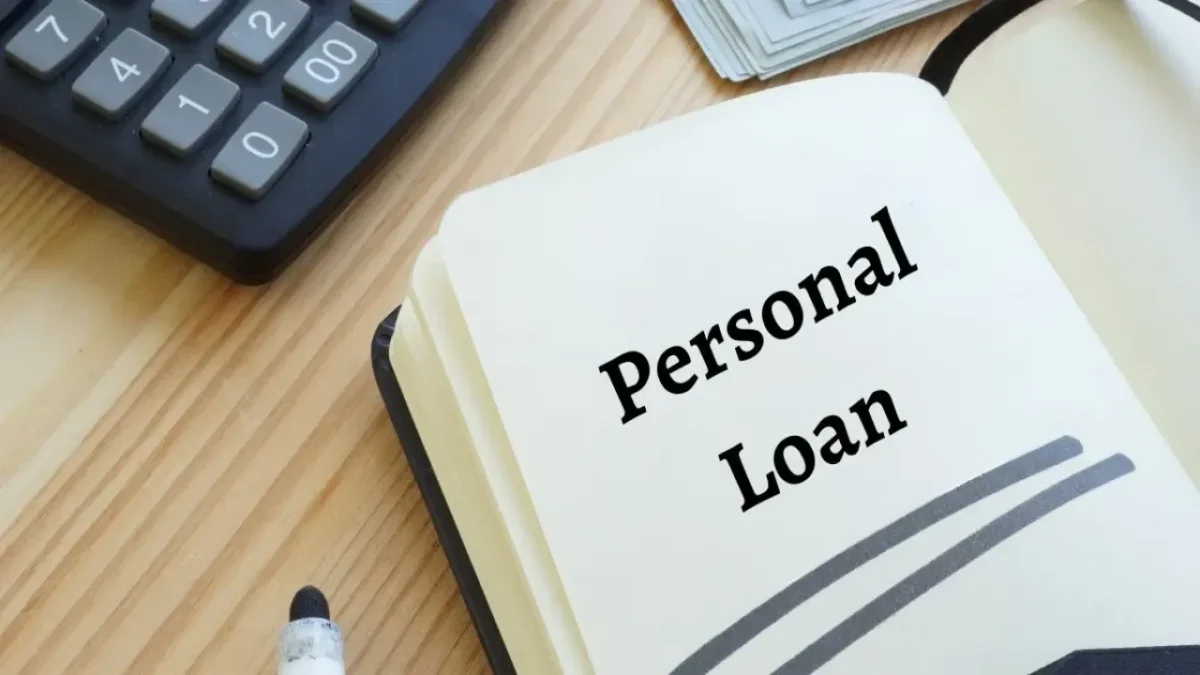
How to Get a Fast Cash Loan with Bad Credit
September 20, 2025
How to Apply for Student Loan Forgiveness After 20 Years
September 20, 2025Can You Get a Personal Loan if You’re Self-Employed?
Understanding Personal Loans
Personal loans are versatile financial instruments that individuals can utilize for various purposes, ranging from consolidating debt to funding home improvement projects. These loans offer borrowers a lump sum of money that can be repaid over a predetermined period with fixed or variable interest rates. A key feature of personal loans is their flexibility, as they can typically be used for any expense that the borrower deems necessary.
There are mainly two types of personal loans: secured and unsecured. Secured loans require collateral, such as a vehicle or savings account, which the lender can claim if the borrower defaults on the loan. This type generally offers lower interest rates due to reduced risk for the lender. On the other hand, unsecured loans do not require collateral, which typically results in higher interest rates, as the lender is taking on more risk. Unsecured loans are often favored by those who do not possess sufficient assets to use as collateral.
The terms and conditions associated with personal loans can vary widely depending on the lender and the applicant’s financial history. Commonly, lenders require a credit assessment to determine the applicant’s ability to repay the loan, which may include evaluating their credit score, income, and existing debt obligations. Borrowers should also be aware of other factors such as loan limits, repayment periods, and possible fees that may apply throughout the life of the loan. Understanding these aspects is crucial, especially for self-employed individuals who may have uneven income streams, as it raises the question of whether one can get a personal loan if self-employed.
Self-Employment and Financial Stability
Self-employment represents a growing segment of the workforce, characterized by individuals who generate income from their own business ventures rather than through traditional employment. While this mode of working offers distinct advantages, such as flexibility and independence, it also brings unique challenges, particularly regarding financial stability and creditworthiness. Lenders often evaluate applicants’ financial health based on consistent income, and self-employed individuals may face scrutiny in this area.
One significant difference between self-employed and traditionally employed individuals lies in income verification. Traditional employees typically receive regular paychecks, allowing lenders to easily assess income stability through pay stubs and tax documentation. On the other hand, self-employed individuals might have fluctuating income streams that can vary from month to month. This inconsistency can raise concerns for lenders, who may be hesitant to extend credit without understanding the applicant’s earning potential thoroughly.
Moreover, employment history plays a critical role in assessing financial stability. While traditional employment histories can demonstrate steady career progression and job reliability, self-employed individuals must provide a more comprehensive narrative of their business performance. Lenders may require several years of tax returns or profit and loss statements to ascertain both the longevity and viability of the self-employment venture. This challenge necessitates meticulous financial record-keeping to reassure potential lenders of one’s ability to meet repayment obligations.
Finally, how lenders perceive self-employment can also impact an individual’s creditworthiness. Self-employed applicants may need to present a robust business plan or evidence of a consistent client base to counter perceptions of risk associated with variable incomes. Therefore, having a solid financial footing and demonstrating a successful business model become crucial when exploring the question, can you get a personal loan if self-employed.
Challenges Faced by Self-Employed Individuals
Self-employed individuals often encounter unique challenges when seeking a personal loan. One significant hurdle is income fluctuation, which can make it difficult to demonstrate a stable financial situation. Unlike traditional employees who receive a consistent paycheck, self-employed individuals may experience variable earnings due to the nature of their work. Lenders typically assess an applicant’s ability to repay a loan based on regular income, and this inconsistency can raise concerns about the applicant’s reliability, affecting their chances of approval.
Another challenge that self-employed borrowers face is the lack of traditional pay stubs. Most loan applicants can provide documentation such as W-2 forms or monthly pay stubs to verify their income. However, for self-employed individuals, it is often necessary to submit alternative forms of documentation, such as bank statements, profit and loss statements, or tax returns, to establish their income levels. This requirement can complicate the application process and may lead to potential delays in approval.
Additionally, inconsistent earnings can have a direct impact on loan approval rates. Lenders typically prefer a clear and consistent income stream, which means that any variability may lead to a higher risk assessment and possibly unfavorable loan terms. To mitigate these challenges, self-employed individuals should prioritize maintaining organized financial documents and records. Presenting comprehensive financial statements that illustrate income stability over time can help borrowers better convey their financial situation to potential lenders.
Establishing a solid grasp of one’s financial health and preparing necessary documentation are essential steps for those wondering, “can you get a personal loan if self employed?” By addressing these challenges proactively, self-employed individuals can enhance their chances of successfully obtaining a personal loan.
Eligibility Criteria for Personal Loans as a Self-Employed Person
When navigating the landscape of personal loans, self-employed individuals often face a unique set of eligibility criteria that may differ from traditional employees. Lenders assess self-employment status through a lens that considers income stability, creditworthiness, and financial documentation. Understanding these requirements is essential for self-employed applicants who seek financing.
First and foremost, a minimum credit score is often a critical requirement for securing a personal loan. Lenders typically prefer applicants with a score of 680 or higher, as this demonstrates a history of responsible credit use. However, some lenders may be more lenient, especially if the individual can provide substantial documentation outlining their income and financial health.
In terms of income thresholds, self-employed individuals should be prepared to show that they have a consistent income stream. Lenders generally look for a minimum income level, which can vary significantly based on the lender’s policies. Frequently, self-employed applicants are required to provide income documentation such as personal tax returns from the last two years, profit and loss statements, and bank statements. These documents aid lenders in accurately assessing the applicant’s financial situation and capacity to repay the loan.
Additionally, lenders may have specific requirements tailored to self-employed borrowers. These may include a longer period of self-employment, typically two years or more, or a minimum number of active clients or contracts. Establishing a reliable business history can greatly enhance a self-employed person’s chances of approval.
To summarize, while self-employed individuals can secure personal loans, they must meet a set of stringent eligibility criteria that highlight their financial stability and creditworthiness. By proactively preparing the necessary documentation and understanding lender requirements, self-employed borrowers can improve their chances of obtaining a personal loan.
Types of Lenders Available for Self-Employed Borrowers
When exploring options for obtaining a personal loan as a self-employed individual, it is important to understand the various types of lenders available. Each type of lender has its approach to evaluating self-employment income, which can significantly impact loan approval.
Traditional banks are one of the most common sources for personal loans. They often offer competitive interest rates and favorable loan terms. However, they typically have stringent requirements for income verification, and self-employed borrowers may face challenges supplying the necessary documentation, such as tax returns and profit and loss statements. These lenders may also take longer to process loan applications, which can be a disadvantage for those needing quick access to funds.
Credit unions represent another viable option for self-employed individuals seeking personal loans. As nonprofit organizations, they tend to offer lower interest rates and fees compared to traditional banks. Credit unions often have a more personalized approach to lending, which can be beneficial for self-employed borrowers. However, membership eligibility requirements can be a hurdle that some may face, and it might take additional time to gain access to their loan products.
Online lenders have gained popularity in recent years and provide a streamlined, efficient loan application process. They cater to a wide range of borrowers, including self-employed individuals. Many online lenders utilize technology to analyze income and creditworthiness, which can result in faster loan approvals. However, borrowers should exercise caution, as interest rates can be higher than traditional banks and may come with hidden fees.
Finally, peer-to-peer lending platforms serve as an alternative for self-employed borrowers. These platforms connect individuals directly to investors willing to fund loans. This can lead to favorable terms and a more relaxed income verification process. Nonetheless, interest rates can vary widely, and the reliability of the lending platform should be thoroughly researched.
Tips for Self-Employed Individuals Applying for Personal Loans
When self-employed individuals seek personal loans, it is essential to enhance their chances of approval by adopting strategic measures. Primarily, maintaining a good credit score is crucial. Lenders often rely on credit history to gauge an applicant’s reliability in repaying loans. Therefore, regularly checking credit reports for accuracy, addressing any discrepancies, and paying bills on time are fundamental steps. Self-employed borrowers should aim for a credit score above 700 to improve their qualifying prospects.
Additionally, meticulous financial record-keeping can significantly influence loan applications. Self-employed individuals often have variable income, which can raise concerns for lenders. To alleviate such worries, it is advisable to maintain comprehensive financial statements, including profit and loss statements, tax returns, and bank statements. These documents should illustrate consistent revenue, showcasing stability and reliability in income generation over time.
Furthermore, demonstrating consistent cash flow is paramount when applying for a personal loan. Self-employed individuals should calculate their average monthly income and expenses to present a clear picture of their financial situation. This proactive approach not only establishes credibility but also allows borrowers to explain any fluctuations in income transparently. In some instances, showing multiple income sources can further strengthen an application.
Lastly, self-employed borrowers may consider seeking co-signers to enhance their loan applications. A co-signer with a strong financial background can provide additional assurances to lenders, potentially easing concerns regarding the self-employed applicant’s income variability. However, it’s essential for both parties to understand the implications and responsibilities that come with co-signing a loan.
By implementing these strategies, self-employed individuals can significantly improve their chances of obtaining a personal loan while demonstrating their financial capability. In conclusion, thorough preparation and understanding of the lending landscape are vital steps to secure financial assistance successfully.
Alternatives to Personal Loans for Self-Employed Individuals
For self-employed individuals, obtaining a personal loan can sometimes be a challenging endeavor due to varying income levels and the lack of a traditional employment structure. Nevertheless, various alternatives to personal loans exist that may better suit the financial needs of self-employed individuals. These alternatives can provide access to necessary funds while mitigating the risks associated with personal loans.
One viable option is a business loan, specifically designed for entrepreneurs and self-employed persons. These loans evaluate the overall health of the business rather than focusing solely on personal credit scores. Business loans can often offer larger amounts of funding and may have more flexible terms, making them a good alternative for those who can provide documentation of their business revenue.
Another option worth considering is a business line of credit. Unlike a traditional loan, a line of credit allows self-employed individuals to access funds as needed, providing flexibility in managing cash flow. This is particularly useful for self-employed individuals who might experience fluctuating income, as they can borrow only what they require and pay interest only on the amount used.
Home equity loans can also serve as a useful financing solution for self-employed individuals looking to obtain larger sums of money. By leveraging the equity built in their homes, self-employed borrowers can secure funds at potentially lower interest rates compared to unsecured personal loans.
Lastly, self-employed individuals may consider negotiating advance payments on contracts or invoice payments from clients. This practice can provide immediate cash flow without the need to apply for traditional financing solutions. Each of these alternatives offers unique benefits and can be an effective means for self-employed individuals to secure funding without necessarily relying on personal loans. Exploring these options thoroughly can lead to a more sustainable financial decision.
Success Stories: Self-Employed Individuals Who Secured Loans
Obtaining a personal loan can be challenging for self-employed individuals, yet many have successfully navigated this financial landscape. By employing effective strategies, they have secured funding for various personal or business-related needs. One inspiring success story is that of Sarah, a freelance graphic designer. Faced with the need to purchase new equipment to meet her client demands, Sarah was initially discouraged by her self-employed status. However, by maintaining meticulous financial records and demonstrating a consistent income stream, she was able to present a strong case to lenders. With her application for a personal loan approved, she improved her business capabilities, which ultimately led to an increase in clients.
Another noteworthy example involves James, a self-employed contractor. Despite experiencing variability in monthly earnings, James focused on the strength of his credit score and his ability to provide tax documents that showcased his profitability. By approaching community banks that had more flexible lending criteria, he demonstrated his ability to repay the loan, ultimately securing the funds necessary for expansion. This strategic approach not only aided in acquiring personal funding but also increased his project capacity, leading to substantial growth in his business.
These success stories illustrate that, while challenges exist, self-employed individuals can indeed secure personal loans. Key strategies include presenting detailed financial records, showcasing a strong credit history, and selecting lenders who understand the unique financial situations of self-employed applicants. By proactively addressing potential concerns, such as income stability, individuals can enhance their chances of approval. The journeys of Sarah and James offer motivation, encouraging others facing similar hurdles to consider their own potential paths to securing the necessary funding. These examples emphasize the importance of preparation, perseverance, and a well-structured approach in the quest for personal loans while self-employed.
Conclusion: Navigating the Loan Application Process as Self-Employed
As a self-employed individual, the prospect of securing a personal loan may seem daunting, but it is entirely feasible with the right approach and preparation. Throughout this discussion, we explored the unique challenges that self-employed borrowers might face when seeking personal loans, including proof of income and creditworthiness. However, it is crucial to recognize that being self-employed does not automatically disqualify you from obtaining financing.
One of the key takeaways is the importance of preparing comprehensive documentation that reflects your income stability and financial health. This may include tax returns, bank statements, and evidence of ongoing contracts or clients. Lenders often appreciate a detailed overview of your financial situation, which can greatly enhance your chances of approval. Additionally, being prepared to discuss your business model and earnings trajectory can alleviate concerns lenders may have regarding your income consistency.
Moreover, exploring various loan options is essential. Different lenders have different criteria, and some may be more flexible in their underwriting process compared to traditional banks. Online lenders, credit unions, and peer-to-peer lending platforms often cater specifically to self-employed individuals, providing alternatives to traditional financing routes. Always consider the terms and fees associated with these loans, as they can significantly impact your financial situation.
In conclusion, while there may be hurdles to overcome, self-employed individuals can successfully navigate the personal loan application process by being proactive and well-prepared. By taking the time to gather the necessary documentation, understanding the lending landscape, and exploring multiple options, self-employed borrowers can position themselves favorably to achieve their financial goals and secure the funding they need.
FAQ: Can You Get a Personal Loan If You’re Self-Employed?
1. Can I get a personal loan if I’m self-employed?
Yes, self-employed individuals can qualify for personal loans. However, you may need to provide additional documentation to prove your income and financial stability compared to traditional employees.
2. What do lenders look at when evaluating self-employed applicants?
Lenders typically assess:
-
Proof of income (tax returns, bank statements, profit/loss statements)
-
Credit score and history
-
Debt-to-income (DTI) ratio
-
Length of self-employment
-
Business stability
3. What documents do I need to apply?
While requirements vary, most lenders will ask for:
-
Recent tax returns (usually last 1–2 years)
-
Bank statements (personal and/or business)
-
Business license or proof of ownership
-
Profit and loss statements (for some lenders)
-
Government-issued ID and Social Security number
4. Do I need to show a minimum income to qualify?
Many lenders have minimum income thresholds, but they vary. What’s more important is demonstrating consistent, reliable income. Even without a high income, showing financial stability and low debt can improve your chances.
5. Will my business credit score affect my personal loan application?
Generally, no. Personal loans are based on your personal credit, not your business credit. However, if you’re applying for a business loan instead of a personal one, then your business credit may come into play.
6. Can I get a personal loan with bad credit if I’m self-employed?
It’s possible but more difficult. Some lenders specialize in bad credit loans, but they may come with higher interest rates. Strengthening other aspects of your application—like showing stable income—can help.
7. Are interest rates higher for self-employed borrowers?
Not necessarily. If you have a good credit score, strong income, and a low DTI ratio, you may qualify for the same rates as W-2 employees. However, if your income is irregular or difficult to verify, lenders may consider you higher risk and charge more.
8. How can I improve my chances of approval?
-
Keep personal and business finances organized
-
Maintain a strong personal credit score
-
Prepare all required documentation
-
Consider applying with a co-signer or using collateral
-
Work with lenders that specialize in self-employed applicants
9. Are online lenders better for self-employed borrowers?
Online lenders can be more flexible with self-employed applicants than traditional banks. They often have faster approval times, fewer paperwork requirements, and may accept alternative income verification methods.
10. What can I use a personal loan for if I’m self-employed?
You can use personal loan funds for any personal need—such as debt consolidation, home repairs, medical expenses, or even investing in your business. Just note that personal loans aren’t intended strictly for business use, even if you’re self-employed.
Read More:




